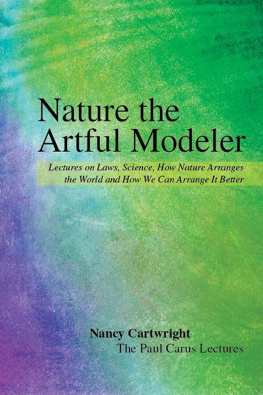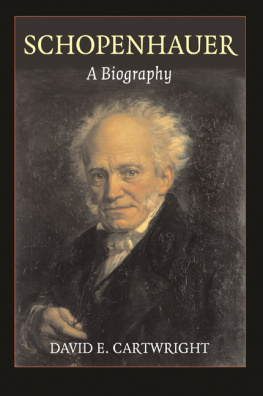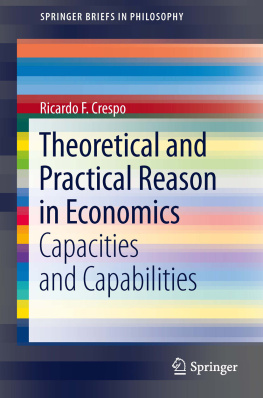Cartwright, Nancy Professor of Philosophy, London School of Economics and Political Science
Nature's Capacities and Their Measurement
Print ISBN 0198235070, 1994
doi:10.1093/0198235070.001.0001
Abstract: This book on the philosophy of science argues for an empiricism, opposed to the tradition of David Hume, in which singular rather than general causal claims are primary; causal laws express facts about singular causes whereas the general causal claims of science are ascriptions of capacities or causal powers, capacities to make things happen. Taking science as measurement, Cartwright argues that capacities are necessary for science and that these can be measured, provided suitable conditions are met. There are case studies from both econometrics and quantum mechanics.
Keywords: capacities,Nancy Cartwright,causal powers,cause,econometrics,empiricism,measurement,philosophy of science,quantum mechanics

Great Clarendon Street, Oxford ox2 6dp
Oxford University Press is a department of the University of Oxford
It furthers the University's objective of excellence in research, scholarship,
and education by publishing worldwide in
Oxford New York
Auckland Bangkok Buenos Aires Cape Town Chennai
Dar es Salaam Delhi Hong Kong Istanbul Karachi Kolkata
Kuala Lumpur Madrid Melbourne Mexico City Mumbai Nairobi
So Paulo Shanghai Taipei Tokyo Toronto
Oxford is a registered trade mark of Oxford University Press
in the UK and in certain other countries
Published in the United States by
Oxford University Press Inc., New York
Nancy Cartwright 1989
The moral rights of the authors have been asserted
Database right Oxford University Press (maker)
All rights reserved. No part of this publication may be reproduced,
stored in a retrieval system, or transmitted, in any form or by any means,
without the prior permission in writing of Oxford University Press,
or as expressly permitted by law, or under terms agreed with the appropriate
reprographics rights organization. Enquiries concerning reproduction
outside the scope of the above should be sent to the Rights Department,
Oxford University Press, at the address above
You must not circulate this book in any other binding or cover
and you must impose this same condition on any acquirer
ISBN 0-19-823507-0
end p.iv
Acknowledgements
Many of the ideas in this book have evolved in conversation with John Dupr, and the work on abstraction has been deeply influenced by Henry Mendell. Indeed, section is taken almost verbatim from a paper which Mendell and I have written together. I have learned about econometrics and its history from Mary Morgan, about exogeneity in econometrics from Anindya Banerjee, and about the classical probabilists and associationist psychology from Lorraine Daston. My concern to embed empiricism in practice has been heightened, and my views have become more developed, by working with the historians of science Norton Wise, Tim Lenoir, and Peter Galison. Part of the research for the book was supported by the National Science Foundation (NSF Grant No. SES8702931), and it was written while I was a fellow at the Wissenschaftskolleg in Berlin, where Elissa Linke typed it. Corrections throughout are due to J. B. Kennedy, who was helped by Hibi Pendleton. I want to thank the Wissenschaftskolleg, the NSF, and all the other people who have helped.
end p.vii
















